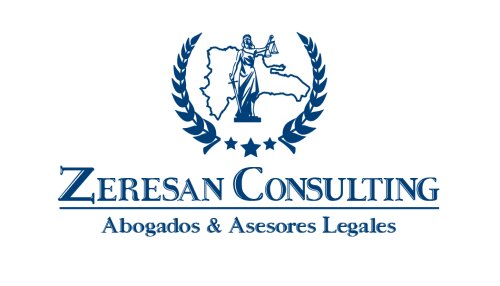Best Conveyancing Lawyers in Santo Domingo Este
Share your needs with us, get contacted by law firms.
Free. Takes 2 min.
Free Guide to Hiring a Real Estate Lawyer
List of the best lawyers in Santo Domingo Este, Dominican Republic
About Conveyancing Law in Santo Domingo Este, Dominican Republic
Conveyancing refers to the legal process of transferring ownership of real property, such as land or buildings, from one party to another. In Santo Domingo Este, a municipality in the Dominican Republic, conveyancing is governed by a mixture of civil law traditions, local regulations, and national property laws. The process involves the preparation, verification, and execution of legal documents required for property transactions. Key aspects include title searches, contract drafting, due diligence, transfer deed execution, and registry filings. The Dominican Republic places great importance on accurate title registration, as this determines legal ownership and protects both buyers and sellers.
Why You May Need a Lawyer
Legal assistance is highly recommended for anyone involved in buying, selling, or transferring property in Santo Domingo Este. Some common situations where a lawyer’s guidance is crucial include:
- Buying or selling residential, commercial, or undeveloped land
- Clarifying property boundaries and title disputes
- Resolving legal encumbrances or liens on a property
- Preparing or reviewing sales contracts
- Handling inheritance or succession-related property transfers
- Navigating property transactions involving foreign buyers or sellers
- Ensuring compliance with local and national property regulations
- Facilitating transactions involving mortgages or bank-financed properties
Local Laws Overview
Conveyancing in Santo Domingo Este is regulated primarily by the Land Registry Law (Ley de Registro de Títulos) and the Property Law (Ley de Propiedad Inmobiliaria). The Dominican legal system requires all real estate transactions to be formalized through a notarized contract and registered in the local Land Registry Office (Oficina de Registro de Títulos). Important areas to consider include:
- Title Verification: Buyers must verify that the seller holds a clear, unencumbered title. Any mortgages, liens, or legal disputes must be resolved before transfer.
- Transfer Processes: Property transfers require the drafting of a formal sales contract (Contrato de Compraventa), notarization by a Dominican notary, and subsequent registration.
- Transfer Taxes and Fees: Several taxes and fees apply, including the property transfer tax (Impuesto de Transferencia Inmobiliaria), which is usually 3 percent of the property’s assessed value.
- Due Diligence: Due diligence is essential, covering debt checks, urban planning compliance, and any legal restrictions affecting the property.
- Foreign Buyers: Non-citizens are permitted to acquire property in the Dominican Republic, but additional identification and documentation may be required.
Frequently Asked Questions
What is conveyancing and why is it important?
Conveyancing is the legal process of transferring property ownership from one party to another. It ensures that the transaction is legally valid, the title is clear, and both seller and buyer are protected against future disputes.
Is it necessary to hire a lawyer for a real estate transaction in Santo Domingo Este?
While not strictly mandatory, hiring a lawyer is strongly advised to manage due diligence, draft legal documents, verify the title, and ensure proper registration and compliance with all requirements.
How long does the conveyancing process usually take?
The process may take several weeks to a few months, depending on the complexity of the transaction, completeness of documentation, and potential complications such as disputes, mortgages, or inheritance issues.
What documents are required for a property transfer?
Commonly required documents include the seller’s title (Certificate of Title), national ID or passport, sales contract, tax receipts, cadastral map or property plans, and proof of payment for all relevant taxes and fees.
Are there any taxes or fees associated with conveyancing?
Yes, principal fees include the 3 percent transfer tax, notary fees, and registry fees. Other administrative costs may also apply, depending on the transaction’s complexity.
How does the title registration process work?
After notarizing the sales contract, the deed and supporting documents must be submitted to the Land Registry Office for official recordation. Proper registration is critical to ensure legal ownership.
Can foreigners buy property in Santo Domingo Este?
Yes, foreigners can buy and own property in the Dominican Republic, including Santo Domingo Este. They must comply with the same laws as locals, but may require additional documentation, such as certified translations and proof of lawful funds.
What risks exist if I do not conduct proper due diligence?
Failure to carry out due diligence may result in purchasing property with debts, unresolved disputes, illegal structures, or even fraudulent titles, exposing buyers to substantial financial and legal risks.
Who pays the transfer taxes and legal fees?
The buyer typically pays the transfer tax and registry fees. However, the parties can negotiate the distribution of other costs, including attorney and notary fees, in the sales agreement.
What happens if there is a dispute over the property after purchase?
Legal disputes are resolved through negotiation, mediation, or court proceedings. Timely legal representation is crucial to protect your interests and seek a favorable resolution.
Additional Resources
If you need further information or assistance, consider consulting the following resources:
- Oficina de Registro de Títulos: The local Land Registry Office handles property registration, title certificates, and cadastral documents.
- Dirección General de Impuestos Internos (DGII): The country’s tax authority provides information on property taxes and transfer fees.
- Colegio de Abogados de la República Dominicana: The Dominican Bar Association can help you locate qualified conveyancing lawyers.
- Ministry of Justice (Procuraduría General de la República): Offers general legal guidance and oversight of public notaries.
- Municipality of Santo Domingo Este (Ayuntamiento Santo Domingo Este): Provides urban planning information and municipal permit requirements.
Next Steps
If you need legal assistance with conveyancing in Santo Domingo Este:
- Gather all relevant property documents, including ownership records, identification, and any existing contracts.
- Contact a reputable lawyer with experience in Dominican property law. The Dominican Bar Association can provide referrals.
- Consult with your chosen lawyer to evaluate your case, outline necessary steps, and estimate fees and timelines.
- Work closely with your attorney throughout the due diligence, contract drafting, and registration processes to ensure a secure and legally compliant transfer.
- If issues or disputes arise, rely on professional legal advice before taking further action.
Proper legal guidance is essential for a smooth and secure property transaction in Santo Domingo Este. Invest in qualified assistance to protect your interests and achieve a successful outcome.
Lawzana helps you find the best lawyers and law firms in Santo Domingo Este through a curated and pre-screened list of qualified legal professionals. Our platform offers rankings and detailed profiles of attorneys and law firms, allowing you to compare based on practice areas, including Conveyancing, experience, and client feedback.
Each profile includes a description of the firm's areas of practice, client reviews, team members and partners, year of establishment, spoken languages, office locations, contact information, social media presence, and any published articles or resources. Most firms on our platform speak English and are experienced in both local and international legal matters.
Get a quote from top-rated law firms in Santo Domingo Este, Dominican Republic — quickly, securely, and without unnecessary hassle.
Disclaimer:
The information provided on this page is for general informational purposes only and does not constitute legal advice. While we strive to ensure the accuracy and relevance of the content, legal information may change over time, and interpretations of the law can vary. You should always consult with a qualified legal professional for advice specific to your situation.
We disclaim all liability for actions taken or not taken based on the content of this page. If you believe any information is incorrect or outdated, please contact us, and we will review and update it where appropriate.












